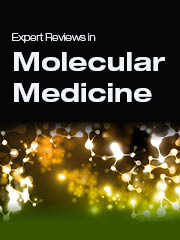Article contents
Tumour–host interactions: implications for developing anti-cancer therapies
Published online by Cambridge University Press: 11 December 2006
Abstract
Cancers are a complex set of proliferative diseases that arise in most cases through multi-step pathways involving an accumulation of genetic and epigenetic changes. These steps include inactivation of tumour suppressor genes and activation of oncogenes. However, in addition to genetic mutations in the tumour cells themselves, the local host environment can act as a critical modulator of cancer progression, having either tumour-suppressive or tumour-promoting effects depending on the stage and site of cancer development. Because stromal cells can have these opposing functions during cancer development and progression, a recurring theme throughout this review will be that of balance: maintaining the normal functions of these co-opted cells, yet selectively inhibiting their pro-tumourigenic functions. To achieve this equilibrium, we need to understand the molecular mechanisms by which normal cells become modified by cancer cells before we can hope to target these functions selectively. Here, we will discuss recent efforts to address these key challenges and offer perspectives on the translation of discoveries made in model systems to the clinic.
- Type
- Review Article
- Information
- Copyright
- © 2006 Cambridge University Press
- 11
- Cited by


